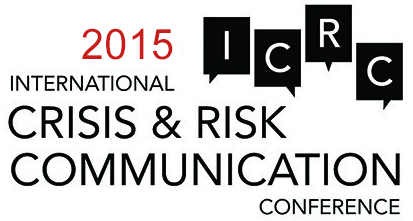
Professor
Nicholson School of Communication, University of Central Florida
United States
Dr. W. Timothy Coombs is a professor in the Nicholson School of Communication and recognized global thought leader in crisis communication. Dr. Coombs has consulted with agencies specializing in crisis communication in the US, Norway, Denmark, and Belgium. He has delivered presentations about crisis communication around world including Australia, Austria, Belgium, Denmark, Finland, Germany, Hong Kong, Norway, Sweden and the United Kingdom. He is the author of three books on crisis communication: the award-winning book “Ongoing Crisis Communication” (now in its third edition),“Code Red in the Boardroom”, and co-edited “The Handbook of Crisis Communication.”
Black Swan, Focusing Events, and Anomalies:
Distractions to Crisis Communication’s Development
On the academic side of crisis communication, our research focus is often on the extreme cases, the black swans. This presentation considers how this focus has been a distraction that limits our understanding of crisis communication. I will focus on the negative effects this emphasis on black swans and major crisis has on the evaluation of crisis communication results and how to correct this problem.
2014
Keynote Presentation: What Zombies Teach Us About Social Media Crises: Managing Crises in the Digital Age
“Social media crises” have attracted a great deal of attention from practitioners and academics. Both groups are trying to understand what they are and how best to manage this relatively new variant of crises. This presentation is design to illuminate social media crises by providing insights into their origins and effective and ineffective strategies for combating them. A parallel to zombies is used to help understand the focus, spread, and reactions to social media crises.
Modern zombies are pathogen-based rather than being created through magic. Social media crises created a concern over a threat to reputations rather than a concern over operational disruptions the served as the foundation for traditional crises. Modern zombies can spread like a plague and computer modeling suggests the most effective strategy to manage zombies is a direct attack on the source. Similarly, social media crises have the potential to spread to other stakeholders and create greater reputational damage. The most effective strategy is to confront the source of the social media crisis.
There are a variety of weapons that can be used to fight zombies. The type of weapon depends in part upon the nature of the zombie attack. Similarly, the effective and ineffective crisis response options for social media crises are a function of the nature of the social media crisis. The various response strategies for managing social media crises are presented along with situational factors that increase or decrease the effectiveness of the various response strategies. The yield of the presentation is a theory based approach to managing social media crises that is enlivened through a connection to zombies.
2013
Keynote Presentation: Sorting Reality from Hype: Creating Rules for Social Media Crises
This presentation covers three topics. It begins with a discussion of why there is so much hype about social media and the danger of simply accepting the hype and not looking behind it. The second part explains the difference between traditional crises and social media crises. This includes an extended discussion of what causes social media crises and what makes a situation a true crisis. The final section identified rules for managing social media crises. The rules cover the areas of crisis prevention/mitigation, preparation, response and recovery. Various cases are used to illustrate key points in the presentation.
2011
Keynote Presentation: Crisis Communication in Turbulent Times: How Social Media Changes the Nature of Crisis Prevention


